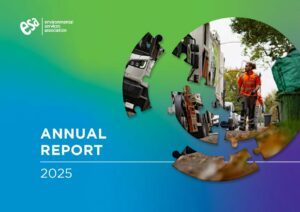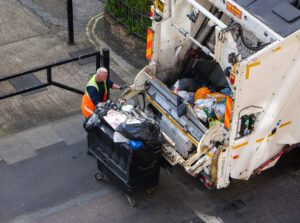By Jacob Hayler, ESA Executive Director
A rigorous, independent, study of energy-from-waste (EfW) capacity in England could help to reduce continued noise and activism around new capacity.
Just before the snap General Election, the previous Defra ministerial team controversially ordered the Environment Agency to temporarily pause new EfW environmental permits pending the outcome and publication of a Defra-led study into energy recovery capacity.
While many, including the ESA, believed that this was politically motivated and related to specific live projects, the publication of a rigorous Defra study would have provided more clarity to the debate around the need to limit new EfW capacity (activist calls for a “moratorium”) in a maturing industry. Unfortunately, the work became buried by the election and as yet, has not seen the light of day.
The UK still sends six millions of tonnes of waste to landfill and more than a million tonnes to export markets each year, so from a waste hierarchy perspective, there is still a significant opportunity to move more waste material into energy recovery – but this must be balanced against the potential future efficacy of policy reforms designed to move more material into recycling markets.
Accurately predicting EfW capacity requirements is a complex task and any credible study must ensure that its pipeline capacity forecasts include deliverable projects, with the necessary permissions and with access to waste volumes, and that it does not effectively double-count projects competing for the same volumes. Beyond that, balancing EfW capacity with forecasted residual waste volumes depends on a wide and somewhat unpredictable range of policy and market scenarios including the delivery and efficacy of packaging recycling reforms; recycled material markets; consumer behaviour; economic and population growth and net-zero policies. Regional capacity imbalances provide an additional complication.
As we move into the delivery phase of long-awaited recycling policy reforms, the view of the ESA is that there is sufficient pipeline EfW capacity such that we do not oppose a so-called moratorium on new facilities that have not yet gone through the planning process. We understand that the Defra capacity study was largely ready for publication prior to the election, so we urge the new Minister, Mary Creagh, to revive this work and ensure that it adds some academic rigour and clarity to the debate.




